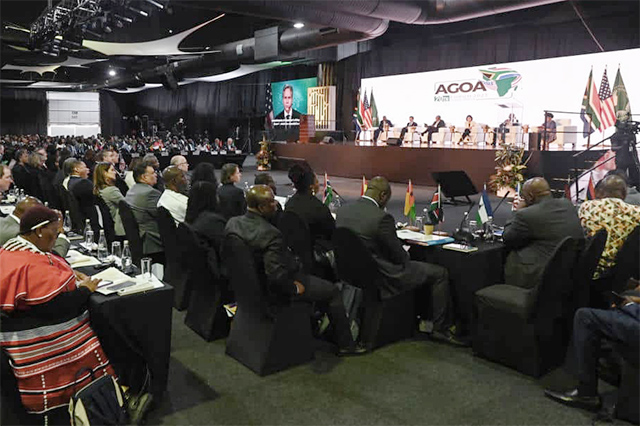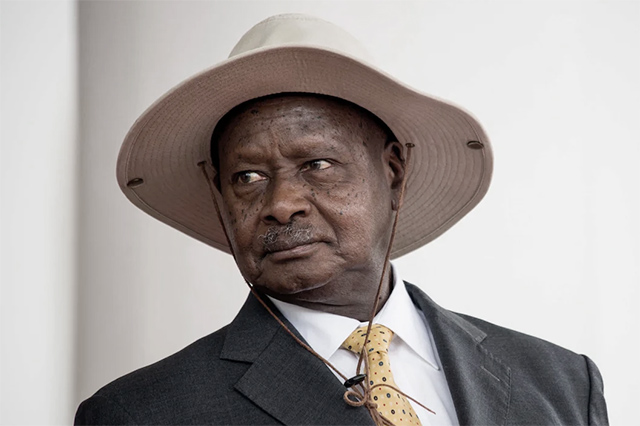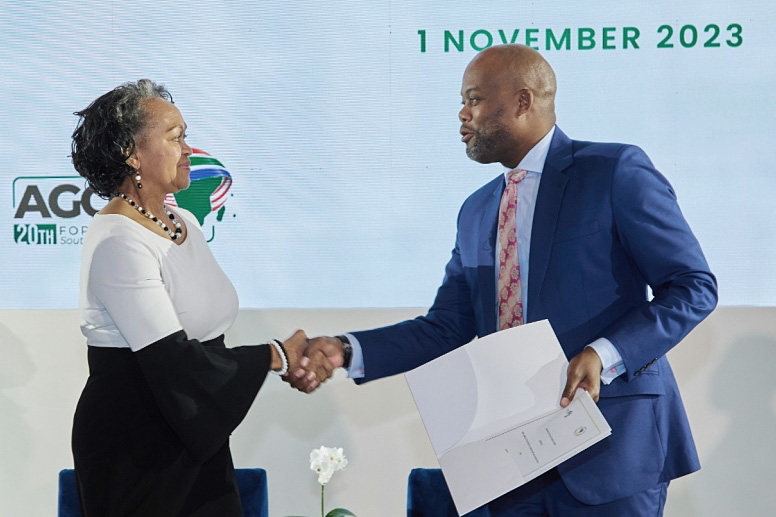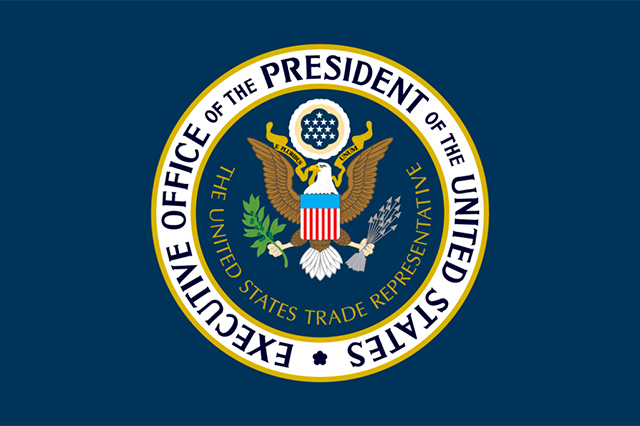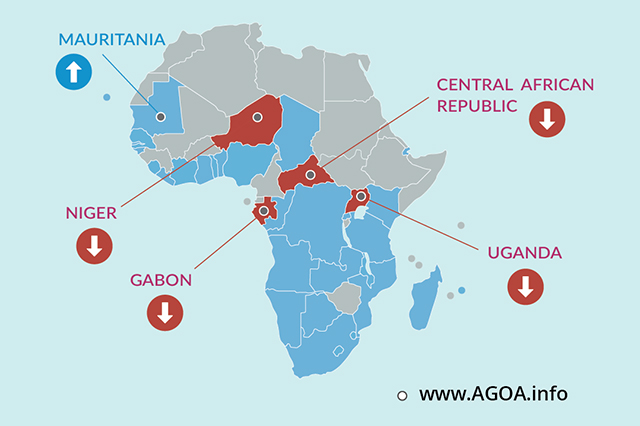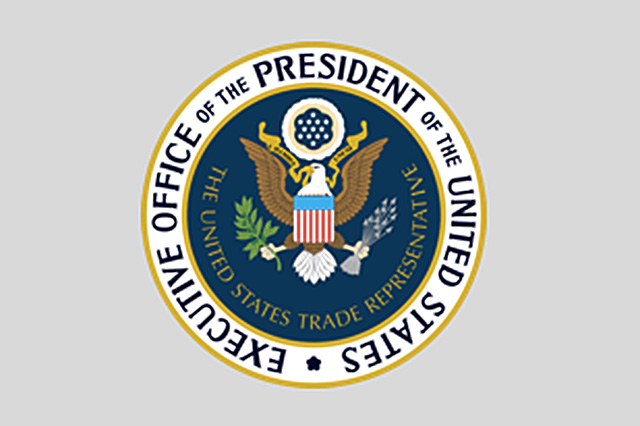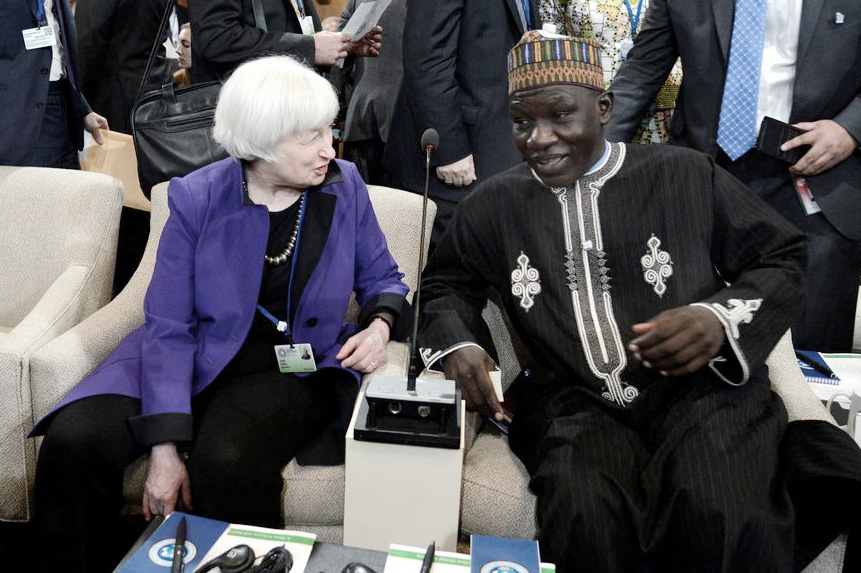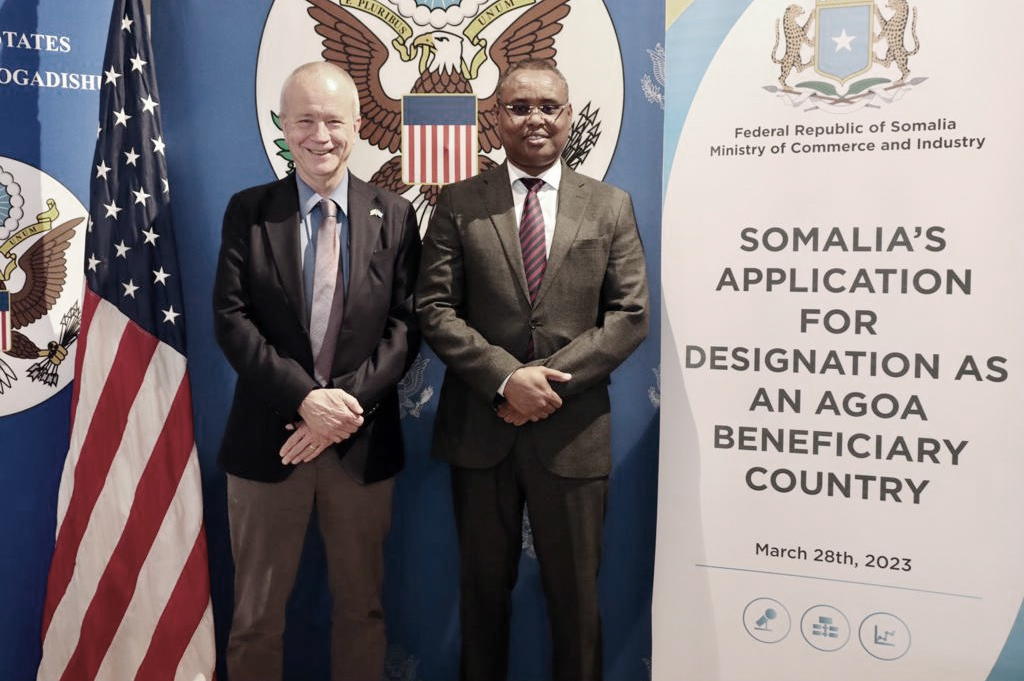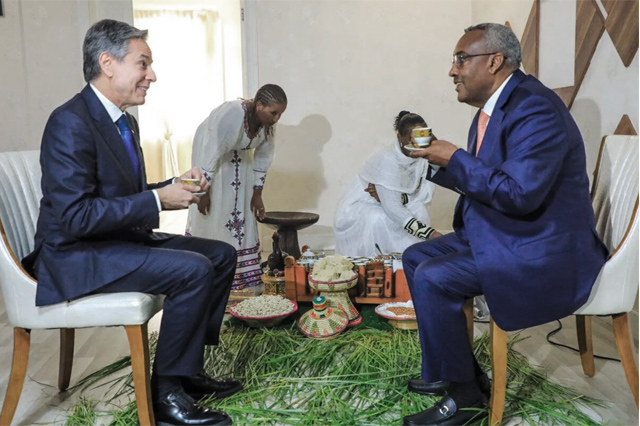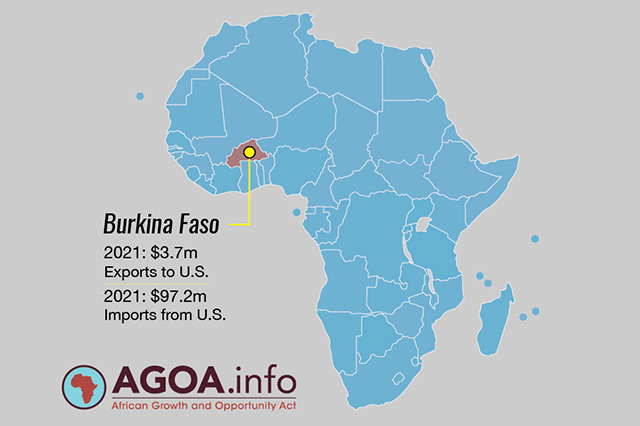Presidential Proclamation regarding Rwanda's AGOA eligibility
Presidential Proclamation to Take Certain Actions Under the African Growth and Opportunity Act and For Other Purposes
Issued on: July 30, 2018
1. In Proclamation 7350 of October 2, 2000, the President designated the Republic of Rwanda (“Rwanda”) as a beneficiary sub-Saharan African country for purposes of section 506A(a)(1) of the Trade Act of 1974 (the “1974 Act”) (19 U.S.C. 2466a(a)(1)), as added by section 111(a) of the African Growth and Opportunity Act (the “AGOA”).
2. Sections 506A(d)(4)(C) (19 U.S.C. 2466a(d)(4)(C)) and 506A(c)(1) (19 U.S.C. 2466a(c)(1)) of the 1974 Act authorize the President to suspend the application of duty-free treatment provided for any article described in section 506A(b)(1) of the 1974 Act (19 U.S.C. 2466a(b)(1)) or section 112 of the AGOA (19 U.S.C. 3721) with respect to a beneficiary sub‑Saharan African country if the President determines that the beneficiary country is not meeting the requirements described in section 506A(a)(1) of the 1974 Act, and that suspending such duty-free treatment would be more effective in promoting compliance by the country with those requirements than terminating the designation of the country as a beneficiary sub‑Saharan African country for purposes of section 506A of the 1974 Act.
3. Pursuant to section 506A(c)(1) of the 1974 Act, I have determined that Rwanda is not meeting the requirements described in section 506A(a)(1) of the 1974 Act and that suspending the application of duty-free treatment to certain goods would be more effective in promoting compliance by Rwanda with such requirements than terminating the designation of Rwanda as a beneficiary sub‑Saharan African country. Accordingly, I have decided to suspend the application of duty-free treatment for all AGOA-eligible goods in the apparel sector from Rwanda for purposes of section 506A of the 1974 Act.
4. Proclamation 8039 of July 27, 2006, implemented the United States-Bahrain Free Trade Agreement (“USBFTA”) with respect to the United States and, pursuant to section 101(a) of the United States-Bahrain Free Trade Agreement Implementation Act (the “USBFTA Implementation Act”) (19 U.S.C. 3805 note), incorporated in the Harmonized Tariff Schedule of the United States (HTS) the rules of origin necessary or appropriate to carry out the USBFTA.
5. Section 1206(a) of the Omnibus Trade and Competitiveness Act of 1988 (the “1988 Act”) (19 U.S.C. 3006(a)) authorizes the President to proclaim modifications to the HTS based on the recommendations of the United States International Trade Commission (the “Commission”) under section 1205 of the 1988 Act (19 U.S.C. 3005) if he determines that the modifications are in conformity with United States obligations under the International Convention on the Harmonized Commodity Description and Coding System (the “Convention”) and do not run counter to the national economic interest of the United States.
6. In Proclamation 9549 of December 1, 2016, pursuant to the authority provided in section 1206(a) of the 1988 Act, the President modified the HTS to reflect amendments to the Convention. Bahrain is a party to the Convention and likewise implemented the amendments to the Convention in its tariff schedule.
7. Because of these changes in the national tariff schedules of the parties to the USBFTA, the rules of origin set out in Annexes 3-A and 4-A of the USBFTA must be changed to ensure that the tariff and certain other treatment accorded under the USBFTA to originating goods will continue to be provided under the tariff categories that were modified in Proclamation 9549. The USBFTA parties have agreed to make these changes in a protocol to the USBFTA that went into effect on November 30, 2017.
8. Section 202 of the USBFTA Implementation Act provides certain rules for determining whether a good is an originating good for purposes of implementing tariff treatment under the USBFTA. Section 202(j)(1) of the USBFTA Implementation Act authorizes the President to proclaim the rules of origin set out in the USBFTA and any subordinate categories necessary to carry out the USBFTA, subject to certain exceptions set out in section 202(j)(2)(A).
9. I have determined that modifications to the HTS proclaimed pursuant to section 1206(a) of the 1988 Act are necessary or appropriate to ensure the continuation of treatment accorded originating goods under tariff categories modified in Proclamation 9549.
10. Following the amendments to the Convention reflected by the modifications to the HTS made in Proclamation 9549, the World Customs Organization issued a small number of conforming amendments to the Convention that should have been included in the amendments that were implemented on January 1, 2017, pursuant to Proclamation 9549. The Commission then recommended additional modifications to the HTS pursuant to section 1205 of the 1988 Act to conform the HTS to these most recent amendments to the Convention. I have determined that these recommended modifications to the HTS proclaimed in this proclamation pursuant to section 1206(a) of the 1988 Act are in conformity with United States obligations under the Convention and do not run counter to the national economic interest of the United States.
11. Proclamation 9693 of January 23, 2018, implemented action in the form of a safeguard measure under section 203 of the 1974 Act (19 U.S.C. 2253) with respect to certain crystalline silicon photovoltaic cells, whether or not partially or fully assembled into other products (such as modules).
12. The safeguard measure imposed a tariff-rate quota, for a period of 4 years, on imports of solar cells that are not partially or fully assembled into other products, and an increase in duties on imports of modules, as defined by Note 18(g) in subchapter III of chapter 99 of the HTS, also for a period of 4 years.
13. Section 604 of the 1974 Act (19 U.S.C. 2483) authorizes the President to embody in the HTS the substance of the relevant provisions of that Act, and of other Acts affecting import treatment, and actions thereunder, including removal, modification, continuance, or imposition of any rate of duty or other import restriction.
14. Proclamation 9693 modified chapter 99 of the HTS to implement the safeguard measure described in paragraphs 11 and 12 of this proclamation. Those modifications included certain technical errors, and I have determined, pursuant to section 604 of the 1974 Act, that modifications to the HTS are necessary to correct them.
15. Section 1206(c) of the 1988 Act provides that modifications proclaimed by the President under section 1206(a) may not take effect before the thirtieth day after the date on which the text of the proclamation is published in the Federal Register.
NOW, THEREFORE, I, DONALD J. TRUMP, President of the United States of America, by virtue of the authority vested in me by the Constitution and the laws of the United States of America, including but not limited to sections 506A(d)(4)(C) and 506A(c)(1) of the 1974 Act; section 1206(a) of the 1988 Act; and sections 203 and 604 of the 1974 Act, do proclaim that:
(1) The application of duty-free treatment for all AGOA‑eligible goods in the apparel sector from Rwanda is suspended for purposes of section 506A of the 1974 Act, effective July 31, 2018.
(2) In order to reflect in the HTS that, beginning on July 31, 2018, the application of duty-free treatment for all AGOA-eligible goods in the apparel sector from Rwanda shall be suspended, the HTS is modified as set forth in Annex I to this proclamation.
(3) In order to reflect in the HTS the modifications to the rules of origin under the USBFTA, general note 30 to the HTS is modified as provided in Annex II to this proclamation.
(4) The modifications to the HTS set forth in Annex II shall be effective with respect to goods entered for consumption, or withdrawn from warehouse for consumption, on or after the date that is 30 days after the date of publication of this proclamation in the Federal Register.
(5) In order to conform the HTS to the most recent amendments to the Convention, the HTS is modified as set forth in Annex III to this proclamation.
(6) The modifications to the HTS set forth in Annex III shall be effective with respect to goods entered for consumption, or withdrawn from warehouse for consumption, on or after the later of (i) the date that is 30 days after the date of publication of this proclamation in the Federal Register, or (ii) the first day of the month that follows after such thirtieth day.
(7) In order to correct technical errors in the annex to Proclamation 9693, Note 18(c)(iii) in subchapter III of chapter 99 of the HTS is modified by deleting the phrase “Subheadings 9903.45.21 and 9903.45.22 shall likewise” and by inserting in lieu thereof the phrase “Subheading 9903.45.25 shall”; and Note 18(g) is modified by deleting “For purposes of” and by inserting in lieu thereof “Subject to the provisions of subdivision (c)(iii) of this note, for purposes of”.
(8) Any provisions of previous proclamations and Executive Orders that are inconsistent with the actions taken in this proclamation are superseded to the extent of such inconsistency.
IN WITNESS WHEREOF, I have hereunto set my hand this thirtieth day of July, in the year of our Lord two thousand eighteen, and of the Independence of the United States of America the two hundred and forty-third.
DONALD J. TRUMP



